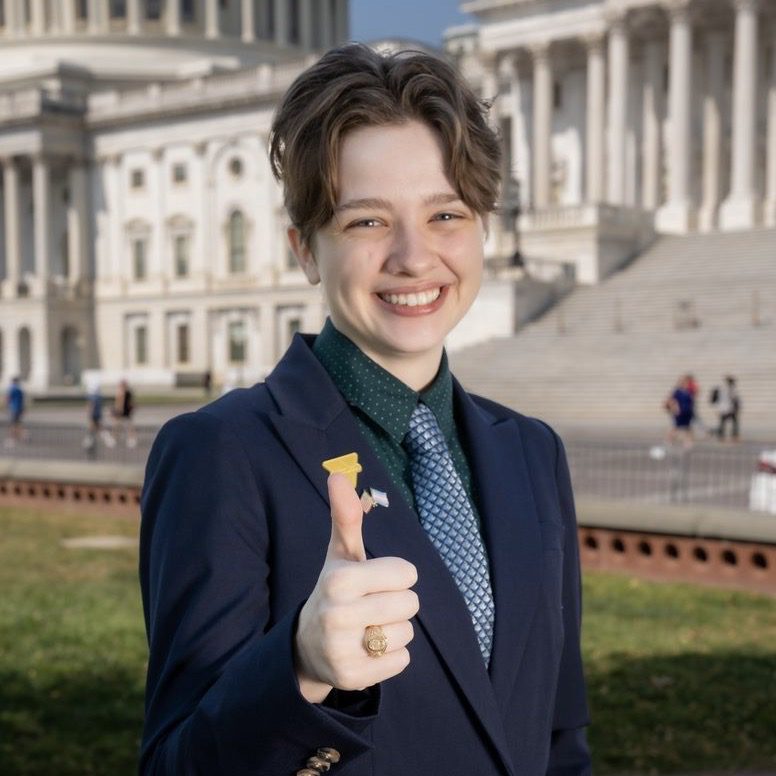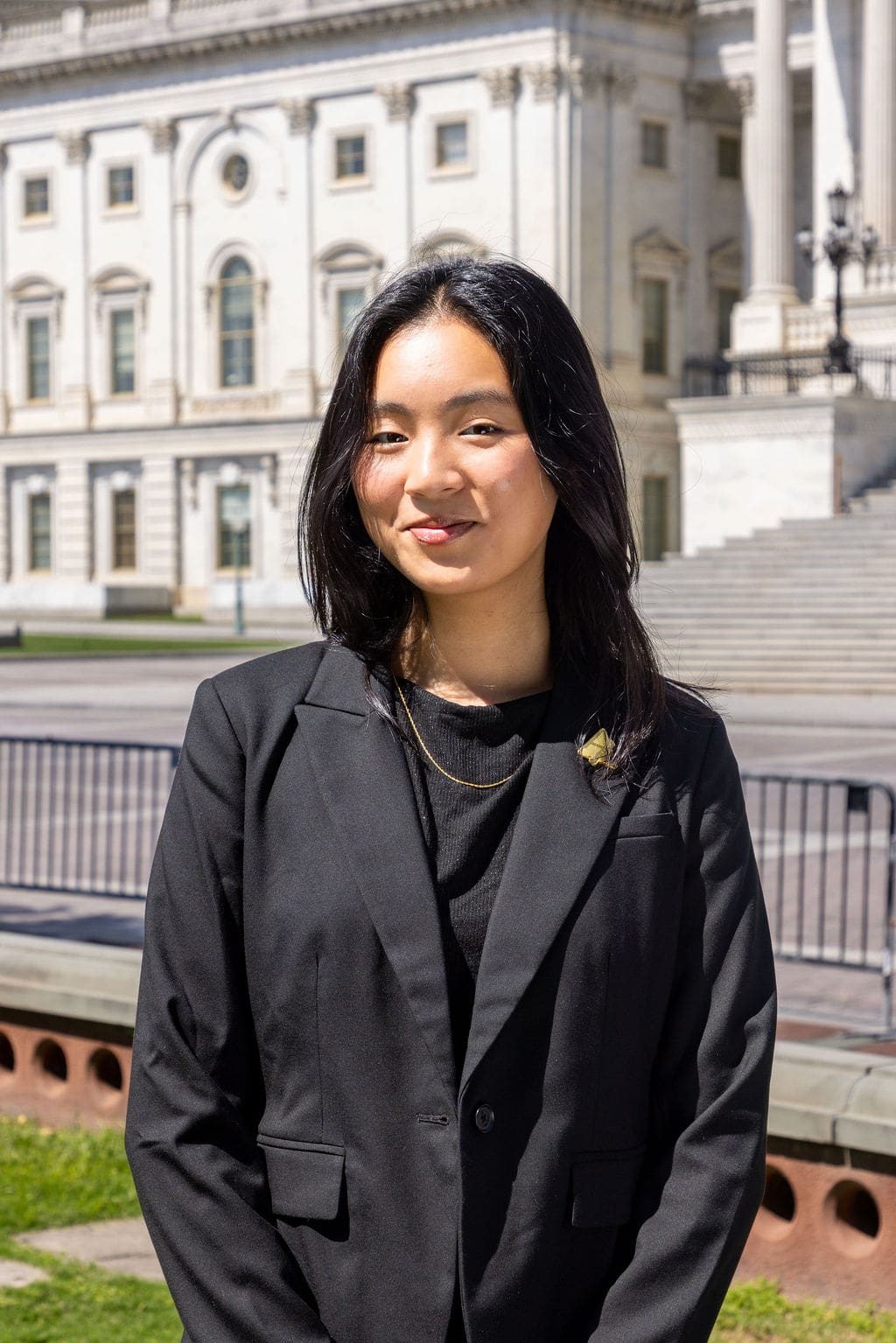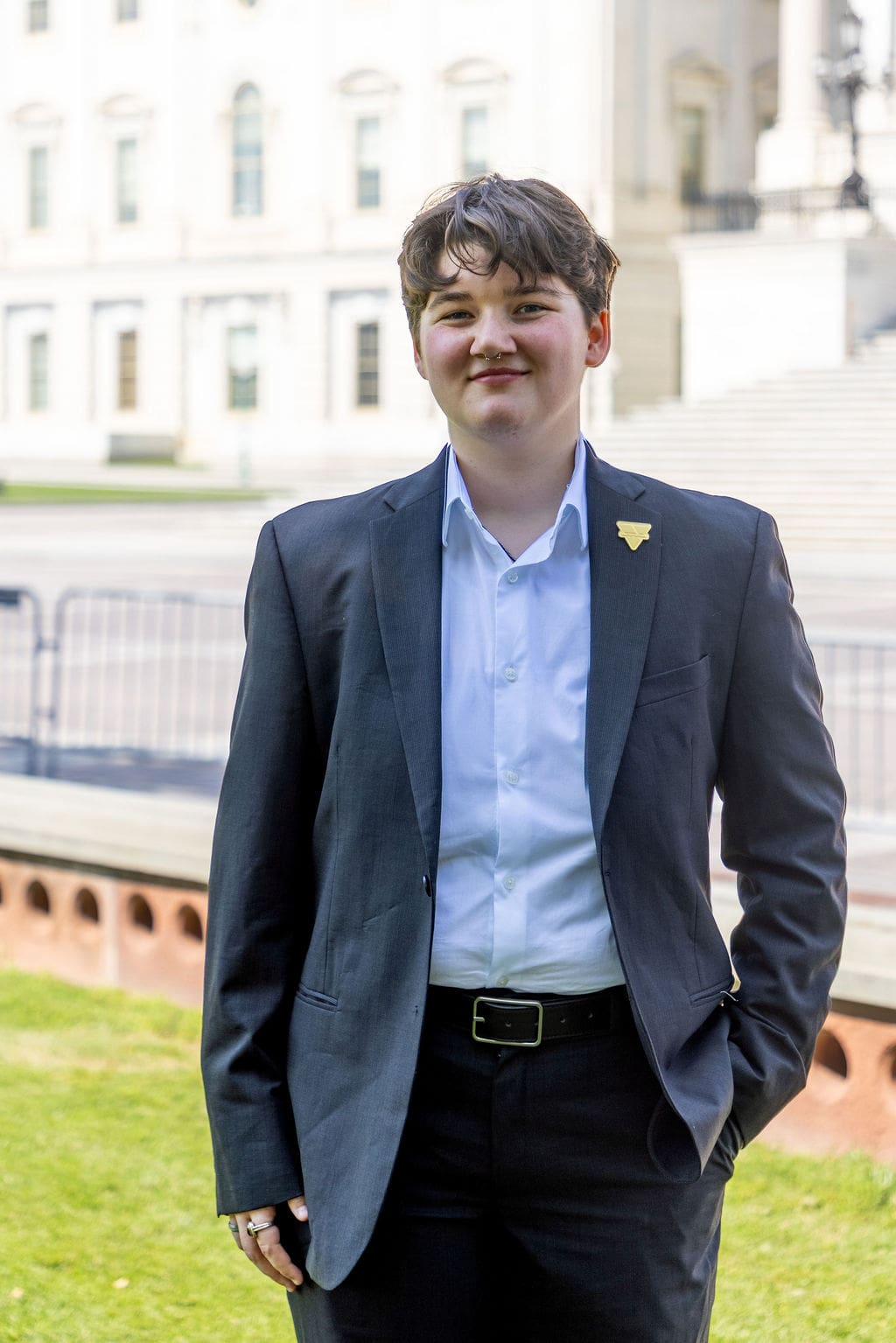
OUT ON THE HILL is the official blog of the Victory Congressional Interns. Views expressed do not necessarily reflect those of LGBTQ+ Victory Institute. Learn more about the internship at victoryinstitute.org/vci.
———————————–
Everybody says they don’t want to talk about politics, but everything is political: when I was told in elementary school to sit like a lady, my posture became political; when the Texas state legislature passed laws regulating when and if transgender athletes can compete, my ballroom dance passion became political. The style of my hair, the clothes I wear, and the bathroom I use have been political since white people hundreds of years ago created racial stratification and elaborate rules of gender to uphold it. Asking where I am from is a political question thanks to gentrification, redlining, and colonization; asking what university I attend is asking about race, gender, class, and ability; asking what I had for lunch is asking about religion, ethnicity, class, and ability.
I am from Texas, and as a Southerner, I am intimately acquainted with the art of dancing around politics. When strangers want to tell me that they know I’m queer and support me, they tell me they like my hair. If I am talking about being queer in public, I say “my community,” not LGBTQ+—and definitely not “transgender.” And if someone wants to say that someone else is queer, even in private, there’s a good chance they’ll simply say “y’all have a lot in common.”
During my first week on the Hill, I attended a nonpartisan—this was heavily stressed: nonpartisan—intern event where Itay Balely, the director of training at the Victory Institute, wished the crowd a Happy Pride. I cheered, but I spent the rest of his speech worrying that he was going to be asked to leave the stage every time he said “LGBTQ+”.
When he finished his speech and walked off the stage, of his own volition, to a round of applause, I realized that being LGBTQ+, in itself, is not partisan. LGBTQ+ people, like all people, think and do anything and everything. There are openly LGBTQ+ Democrats, Republicans, and Independents in Congress. Just like I explain gender by saying there is no nail polish gene, there is also no political party gene. While being LGBTQ+ is so intensely politicized today, particularly for those of us who are visibly queer and/or have intersecting identities, I caught my first glimpse of a future in which existence did not require resistance.
I spent the next morning at the White House Pride Month Celebration—an invitation that knocked my socks off to see in my inbox. I met Jen and Lisa, a married couple who were advocates and educators about the Lavender Scare, a period where LGBTQ+ people were not only banned from working in the federal government, but would be tracked, publicly outed, fired, and likely lose everything they had. After spending a solid hour simply standing in the grass with our mouths open repeating “I can’t believe we’re at the White House!!”, we ate a number of hot dogs I will keep private, met service members, parents, children, activists, politicians, and advocates, and heard the President himself say “it’s not just Pride month: it’s Pride year; it’s Pride life.” It was magical, it was inspiring, it was affirming, and it might have been the first time since I came out nearly ten years ago that I felt completely safe.
An hour after I left the White House, waiting for a walk sign on the corner of Clarendon and Oak, a man leaned out his car window to point at me and yell an anti-gay slur so angrily his voice cracked.
I tell you that not to ruin the mood but because that story is why representation matters. Everyone knows there are angry, homophobic people in our country, and yet so many people have gasped when I told that story. Everyone has heard that many states are banning (or so heavily restricting that they are in effect banning) transgender athletes, and yet so many people are shocked when I say I can’t be on my ballroom dance team.
When a group of people is politicized, they are dehumanized. They become a concept, sometimes even just a buzzword. They lose their joys, their hobbies, their habits, everything except what those writing the narrative want them to be: in the case of transgender athletes, a threat, a predator, an inherent act of violence. Representation means that when people meet me, the mythical “transgender athlete” very suddenly becomes just someone who says “howdy” instead of “hello.” The visibly queer person on the street corner goes from being a symbol of the LGBTQ+ rights movement to being a Trekkie in need of granola bars and trash bags. Representation in politics means that politicians are no longer debating about the scariest monster under their bed but whether that intern with a trans flag pin who always says good morning on the elevator should be allowed to use the bathroom at work.
It is impossible to express how exhausting it is being The Trans Person in almost every room I enter. I am very acutely aware that I am being watched in the cafeteria, on the street, and the bus. I know that if I am anything but gracious when someone misgenders me or asks an intrusive question, I risk that person and their social circles forever believing that trans people are rude, entitled, and everything certain people say we are. I am willing to be The Trans Person—that is why I am in this program—because that is the only way I know to show people who the trans community really is.
When everything is political, everyone is a politician. It can be a burden, yes, but it can also be a privilege. Not one of us needs permission, endorsement, or a party to make change and advocate for our communities. And if you are finishing this blog post full of feelings about my experiences and your own, don’t get mad. Get elected.

